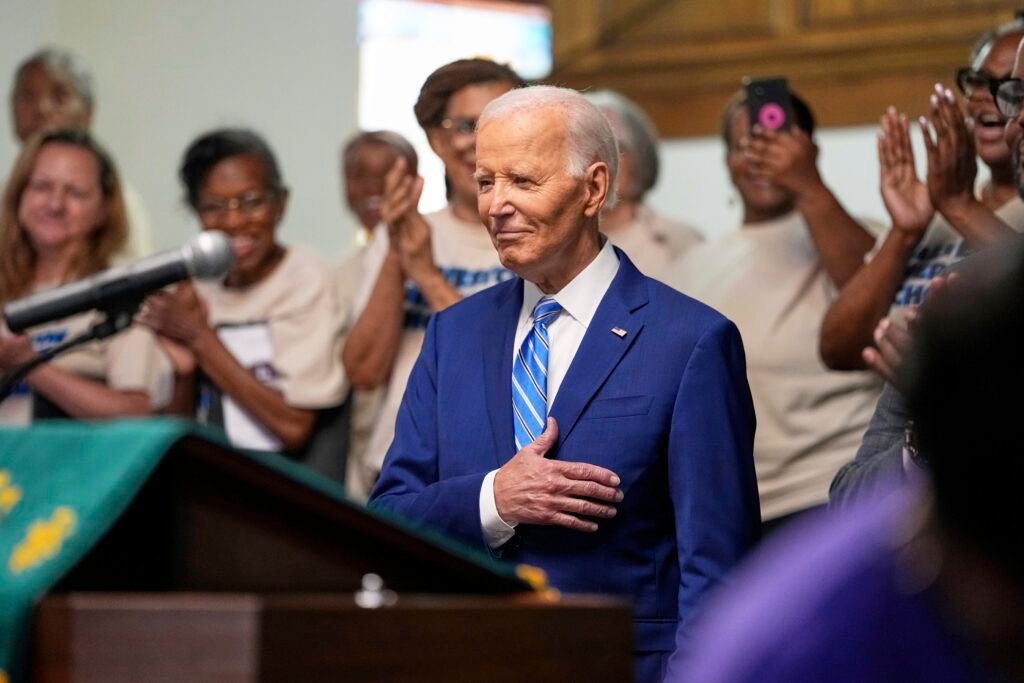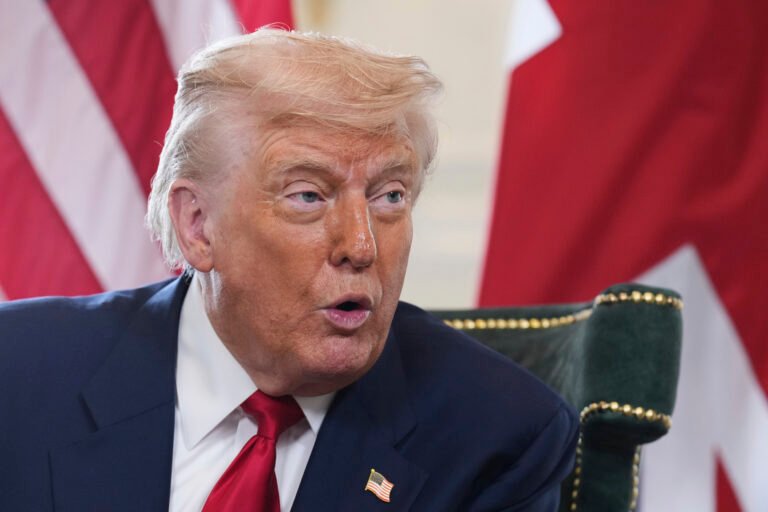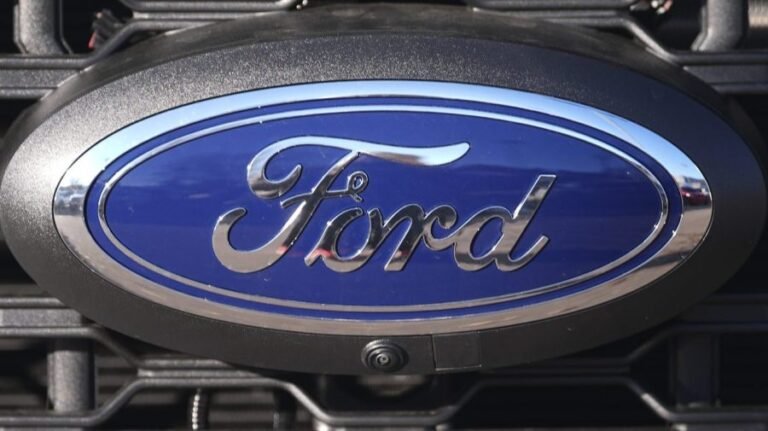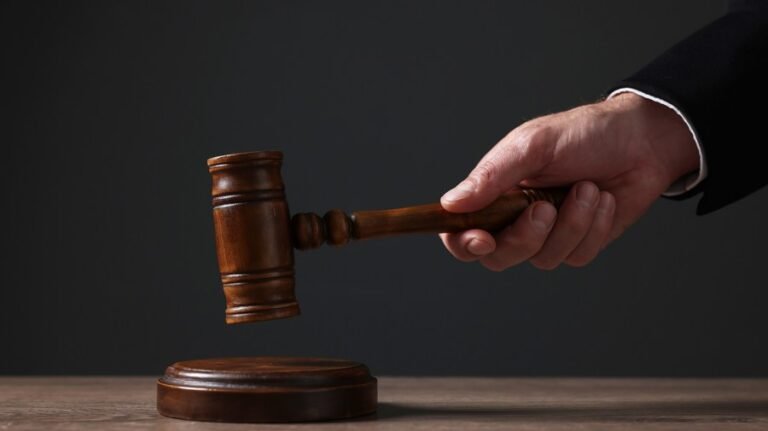
For more than five decades, Joe Biden’s existence was not only incredibly public but busy — his waking hours spent surrounded by a coterie of devoted aides and strategists, his calendar filled with speaking engagements and meetings, his home a bustling and buzzing swarm of activity.
In “What It Takes,” Richard Ben Cramer’s magnum opus on the candidates who sought the presidency in 1988, he captures the scene in the Biden household on the eve of his campaign announcement: “there were typists upstairs, waiting, and gurus present for consultations, and Joe’s parents were over, just to help out … there were a hundred media calls and a million staff and volunteer calls and VIP arrangements — train passes and hotel rooms, Wilmington cops, and state cops and Amtrak cops, the height of the podium (wrong, of course), money bigs with suggestions, food for the staff, people at the airport, people called and said ‘Is Joe there?’”
Ultimately, Biden had what it took to win the presidency.
Now, he’s on the other side of the mountain. And his life has entered a new phase that is quieter and smaller.
He’s staffed by only one or two aides and a small Secret Service detail. He holes up for hours at a time in Delaware working on his memoir with a new ghostwriter, while undergoing treatment for an aggressive form of prostate cancer. He flies commercial, an aide tells POLITICO, with little of the luxury or exclusivity that is often associated with former heads of state.
He’s still Amtrak Joe. But he’s also American Airlines Joe.
“He’s very in the wild,” a person familiar with Biden’s comings and goings told POLITICO. “His footprint is significantly smaller, and it’s sort of shocking.”
In quiet moments outside the Beltway, Biden is often greeted warmly by passersby offering handshakes.
But in Washington, his closest and most loyal advisers sit for closed-door depositions and transcribed interviews on the alleged “cover-up” of his decline and his use of an autopen as president. And as his own party’s still-developing 2028 primary bursts at the seams, Biden’s presidency is still something of a millstone around its neck.
That’s the split screen Biden steps into Thursday night, when he speaks at the closing gala of the National Bar Association’s Centennial Convention in Chicago. His remarks will center on “the progress we’ve made, and the important work that remains to further the cause of justice in America,” a person familiar tells POLITICO.
Biden’s post-presidency is already striking. His memoir sold for $10 million — a major sum, but tens of millions less than Barack Obama’s. At least one report has suggested he may be struggling to raise money for his presidential library, though a spokesperson described this characterization to POLITICO as “unfair.” This June, in San Diego, he spoke to SHRM25, a conference of human resource managers, telling them “thanks to you, the people in your workplace feel secure and respected. I think you underestimate what you do.”
In official Washington, there is little such expression of appreciation for the former president.
The former president still casts a long shadow over his party. In recent days, his former Transportation Secretary Pete Buttigieg had to answer for whether he said all he knew about Biden’s cognition in office. (“I told the truth, which is that he was old,” Buttigieg told NPR’s Steve Inskeep. “You could see that he was old.”) And had his former Vice President Kamala Harris actually run for California governor, the NYT noted, she would “have faced difficult questions about how much she knew about President Biden’s decline and whether she participated in shielding his diminished health from the public.”
Hours before Biden speaks in Chicago, Mike Donilon, his trusted aide of some four decades, will go behind closed doors to offer transcribed testimony for the House Oversight Committee.
That comes one day after former Biden aide Steve Ricchetti’s hourslong testimony in which he attacked Republicans’ “efforts to taint President Biden’s legacy with baseless assertions about President Biden’s mental health,” calling them “an obvious attempt to deflect from the chaos of this Administration’s first six months.”
Oversight Republicans were unfazed by the Biden aide’s accusation. In an appearance last night on Fox News, Oversight Chair James Comer (R-Ky.) turned the focus back to Biden world’s insistence that the former president hadn’t experienced cognitive decline. “It’s almost like they’re a cult,” Comer said.
Biden, a son of the Senate who is respectful of congressional authority, has kept himself at a remove from the Oversight proceedings and the former aides who are testifying, receiving briefings from lawyers and aides after each session, two people familiar with Biden’s thinking told POLITICO.
“He’s really keeping himself at a distance — deliberately and intentionally — because he honors the oversight process,” one of those people said.
A Republican source familiar disputed this, telling POLITICO that during Wednesday’s transcribed interview, Ricchetti stated he had recent conversations with Biden regarding his legal strategy before the transcribed interview.
A person close to the Biden side outside the investigation said “being updated and being kept abreast on the investigations is far from being involved or putting pressure for a specific tactic for former staff.”
Still, Biden’s orbit views the Oversight Committee’s efforts as not having rated in the news cycle.
“It really hasn’t been meaningfully breaking through for a wide array of reasons,” said the first person familiar with Biden’s thinking. “They’re more or less trying to make the damning case that Joe Biden is and was old in office. … Everybody that has been interviewed knows there is no smoking gun. Everything that happened or didn’t happen was reported in the books. The reputational damage to some folks was already baked in, and there’s nothing new.”
A spokesperson for the House Oversight Committee disputed this. “Americans have witnessed President Biden’s cognitive decline with their own eyes, yet his inner circle continues to claim that everything is fine,” Jessica Collins told POLITICO. “The American people see through these denials, especially now, as President Biden’s doctor and some of his closest aides are pleading the Fifth to avoid self-incrimination. The Oversight Committee is currently conducting a thorough investigation to gather information through depositions and transcribed interviews, and will release a report of its findings upon conclusion.”
Biden’s allies have also sometimes grimaced at his son Hunter Biden’s recent incursion into the news cycle, as when he sat down for more than three hours with Channel 5, went on an expletive-laden tear and suggested that his father’s disastrous debate performance in June 2024 was attributable to Ambien.
Was Hunter acting as his father’s anger translator, saying what the elder Biden wishes he could say but can’t?
“He probably thinks he is and thinks he is doing what is best and defending his father,” a former Biden White House official told POLITICO. “But it’s not helpful.”
A storm of clinical and critical tell-all books mostly behind him, Biden is now regularly writing his own book, according to an aide.
But he’s not doing it with Mark Zwonitzer, the writer who helped Biden with 2007’s “Promises to Keep” and 2017’s “Promise Me, Dad,” and decades earlier worked as a research assistant on Richard Ben Cramer’s “What It Takes.” A Biden Foundation spokesperson declined to say who was helping him craft his memoir this time around.
Biden’s smaller entourage now often includes just Annie Tomasini, Biden Foundation spokesperson Kelly Scully and a Secret Service detail.
That smaller footprint allows for some genuinely unscripted moments, members of Biden’s team tell POLITICO. While waiting for flights at major airports, he has posed for photos with other passengers and took the time to handwrite an encouraging note to a Boy Scout during one such interlude in Philadelphia.
Last month, at a Juneteenth celebration at the Reedy Chapel-AME Church in Galveston, Texas, the president who made it an official federal holiday celebrated with congregants, lingering for hours — doing a photo line, speaking with church leadership.
“We were there for three, four hours — it was a long program. And he wanted to stay,” a person traveling with him said. “Anyone who wanted to talk to him had the opportunity to talk to him.” Biden and his small entourage didn’t arrive back at their hotel, the Marriott Marquis in Houston, until after 11 p.m.
All of it recalls that vivid scene in Cramer’s book — the swirl of activity around Biden, the typists upstairs and the gurus present for consultations, the money bigs with suggestions and the people who called and asked “Is Joe there?”
The answer is yes. Joe is still here. But fewer people are around him now, and it’s far closer to the end of a political life than the beginning of one.
Like this content? Consider signing up for POLITICO’s Playbook newsletter.


